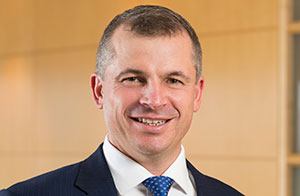What are we to make of the most aggressive raid between top ten City firms since Allen & Overy helped itself to the bulk of Norton Rose’s leveraged finance team back in 2002? In some ways, news this month that Freshfields Bruckhaus Deringer is to ship in a productive five-partner buyout group from Ashurst seems even more notable.
For Freshfields, which has shied away from lateral recruitment in its European heartlands, to make such a huge commitment is striking and speaks to the doubled-down bet the Magic Circle firm has made in private equity and related finance.
In 2015 its much-vaunted team secured a way-above plateau recruitment of high-yield specialist Ward McKimm, culturally a big ask for a firm where veteran partners treat lockstep like religion.
This latest commitment in Paris, for a team with business worth around £8m, is even more notable and illustrates the extent to which Freshfields’ buyout team has gained huge internal clout.
For Ashurst, the move is a considerable but not surprising reverse. The team was long known to be unhappy with Ashurst’s direction and profitability – an issue brought to a head after heavy investment and falling income in 2015/16 savaged its bottom line.
The response from Appold Street is that the firm is realistic about how its business is reshaping post-Blake Dawson, repositioning the firm as an upper mid-market player with extra potency in infrastructure, real estate and related funds, TMT and several product lines in finance. There is nothing wrong with that but it’s plainly not the Ashurst of old and not the easiest narrative to articulate.
Such niceties will take a back seat for now as Ashurst has to demonstrate a tight grip on its finances under new managing partner Paul Jenkins (pictured) before it runs into major investment for its Spitalfields move in 2019. The claim is that morale has steadied after a torrid period in the autumn and that profits are on course for a much better year. It hardly needs saying that Ashurst needs that result.
The wider story in Europe’s legal market is the extent to which unprecedented investment in private equity and leverage finance is remaking strategically key practice lines.
Ashurst has had a hole punched in its European private equity practice leaving it with functional coverage in Paris. The firm – once a brand name for buyout work – is increasingly relegated to mid-tier status in Europe and most City players have seen their position in private equity heavily eroded as US law firms have piled in.
At every point that the leveraged deal market seemed to reach equilibrium over the last decade, it has been bid continually higher. On the same day that news of the Ashurst move emerged, Sidley Austin unveiled a seven-partner Munich deal team taken from Kirkland & Ellis, echoing Sidley’s six-partner hire last spring from the same firm.
Last April Goodwin Procter, of course, hired a private equity and funds team in Paris from King & Wood Mallesons with devastating impact. That the greatest strengths of SJ Berwin were in exactly the portable areas of funds and private equity that were top of the shopping list for high-paying US firms was a factor in that firm ending up as Europe’s largest legal insolvency.
The force of money chasing these mobile stars is shaking law firms to their foundations, contributing to the breakdown in lockstep at elite London firms. There has never been a better time to be a serious player in private equity. Conversely, for managing partners, there has never been a better time to have had your firm sit this one out.
No-one doubts there is a heap of money to be made here but the full impact of this on the legal market is yet to be calculated. And the forces sweeping through the profession have not finished yet.
alex.novarese@legalease.co.uk
Read more in: ‘The M&A Report: Private equity offers the clients for all seasons’











